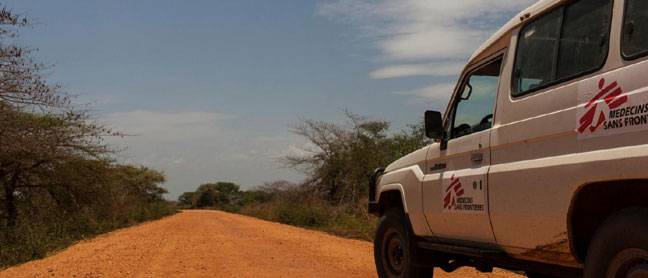KABUL - Humanitarian organization Medecins Sans Frontieres (MSF, or Doctors Without Borders) is concerned over the fact that situation with health care in war-torn Afghanistan continues to further deteriorate, Djoen Besselink, the head of MSF mission for Afghanistan, told Sputnik in an interview.
The MSF is currently implementing its projects in six Afghan provinces, and the experience gained by the mission showed that over the past 10 years, the quality of medical services in the country had significantly decreased, with Afghans experiencing problems with access to medical services in the country, Besselink explained.
“So people come to our centers, they travel sometimes long hours, simply because they cannot find health care where they live. I think we had a few patients research. So 50-55 percent of our patients actually said they come to our hospitals because they cannot find any in the area where they live ... There is no stuff or lack of medication, and ... the donors’ funding is getting less, there are a lot of constraints on the people,” Besselink said.
According to Besselink, in the country’s east, where the MSF is implementing mother and child programs, the MSF teams assist around 40 percent of the total deliveries in the province just because the organization can offer free and qualitative health care.
He added that charges for medical services were being reimposed in the country.
“It does not sound like high amounts if you look at the use of it, but if you take it into account with how much people make and how many people live below the poverty line we fear that it will ever … and need more access to quality health care,” Besselink indicated.
Besselink stated that the organization did not have data about how many people in Afghanistan have access to basic health care, but stressed that many Afghans were in dire need of it.
“So when we know how many people come to our hospitals, so we see how many people we treat and we ask our patients what is the reason you come to our hospital and you do not go to the hospital in your village or district. But it is difficult to say on a whole country level,” Besselink noted.
“In principle, MSF talks to everyone. If you want to be present in any region you need to negotiate with everyone. All parties of the conflict need to indeed understand who you are, why are you there, what are our principles,” Besselink said.
The head of the mission also noted that the organization’s neutrality, transparency and non-political attitude prompted local communities to accept its medical workers, and acceptance from all members of the Afghan society was what ensured MSF staff’s safety in the country.
“In principle, everyone [guarantees MSF workers’ security in Afghanistan]. So since we talk to everyone it is indeed from a local leader to ... the governor, to indeed the minister of health, to ... the armed activists that are there,” Besselink added.
Besselink also noted that the organization did not receive any support from the Afghan government but coordinated its actions with Kabul, which, at the same time, did not prevent MSF from acting independently.
“It would be a shame to do a stand-alone medical activity and not get the bigger picture. And we don’t want to duplicate, we don’t want to replace the Ministry of Health, so, yes, we coordinate on several levels — we coordinate with the government, they know what we do, they know where we are, because there are plenty of examples if people start something next to another clinic, that’s not what we want. So, yes, there is a lot of coordination but it is still an independent effort,” Besselink said.
For decades, Kabul has been fighting numerous terrorist groups launching attacks in the country. The Taliban movement has been one of the major forces opposing the government, as its militants managed to gain control over the country in 1996 before being overthrown in 2001. In 2015, the Islamic State terrorist group (banned in Russia) started operating in the country as well. The Afghan military have been carrying out regular anti-terrorist raids.






